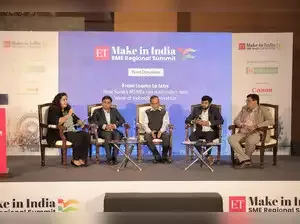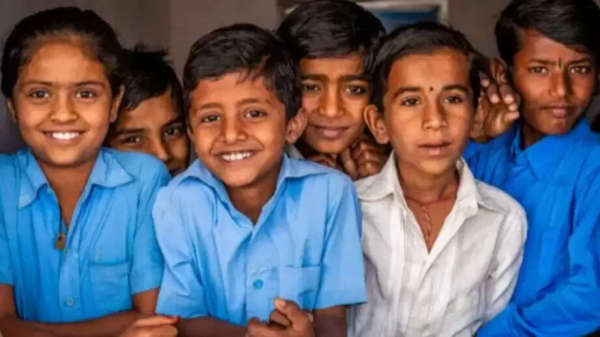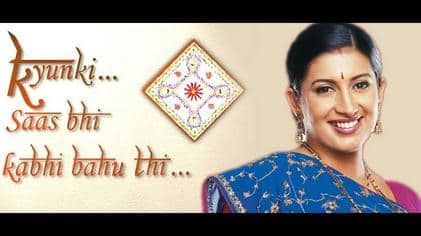When Nikhil Garg moved to Surat three years ago, he wasn’t sure what to expect. But the city didn’t just embrace him— it helped his textile spare parts import business, N-Tex, thrive.
“Surat adapts quickly. It’s a city that thinks big and supports those with courage,” he said. Garg, who is Founder President of the Agarwal Business Network (ABA), led a fireside chat at the ET Make in India SME Regional Summit - Surat on July 18. The summit had IDBI as banking and lending partner and Canon as tech enabler.
Garg imports machinery and components from Germany and China and believes that importing is more than trade: it’s a form of technology transfer. “We’re helping India stay globally competitive in garments by introducing innovations that weren’t accessible before,” he underlined. Especially in knitting, a segment that now dominates 65% of the global textile market, Surat is rapidly catching up with international players.
This tech-forward mindset isn’t limited to machinery. Entrepreneurs in Surat are investing in modern weaving methods such as airjet and waterjet technology in response to labour shortages. And the scale? “Some textile units in Surat rival those in China,” Garg pointed out.
At the heart of this entrepreneurial engine is trust, something Garg has woven into the fabric of ABA. Launched under the Agrawal Samaj Trust, the not-for-profit network now connects over 120 business owners across sectors— from diamonds to insurance and textile manufacturers to astrologers.
“MSMEs work on credit, and credit relies on trust. In ABA, we exchange filtered referrals based on real, successful experiences,” Garg explained.
The network operates through focused industry groups. Its textile group meets monthly to share practical know-how, while its jewellery wing recently explored how silver is the next big thing for young buyers seeking affordable, yet stylish options.
“None of this is taught in schools,” Garg said. “It’s grassroots knowledge, and it’s changing the way MSMEs think and grow.”
What makes Surat ideal for this transformation? For Garg, it’s a mix of safety, cleanliness, infrastructure, and an unusually supportive bureaucracy.
“Surat is like a mini India. There are Kathiyawadis, Marwaris, Gujaratis, all working together. It’s peaceful, industrious, and fast-moving,” he noted at the ET SME Summit. He even called Surat “the next Dubai”, elaborating on its evolution into a smart hub for textiles, diamonds, and even IT.
Garg’s advice for the next generation was simple but powerful: be practical and above all, have courage. He also warned against the trap many startups fall into: spending big on design and branding while ignoring customer satisfaction.
As for the younger entrepreneurs in his network, Garg sees a shift toward visibility and social media clout. But he’s quick to point out that some of Surat’s most successful businesspeople operate under the radar.
“They aren’t on Instagram and they aren’t giving TED Talks. But they are building sustainable businesses, and that’s what really counts,” he concluded.
In a city where tradition and innovation move hand-in-hand, Nikhil Garg was the hyperlocal voice for community-driven growth in Surat. For MSMEs across India, the city might just be the roadmap — and the revolution — they’ve been waiting for.
The ET Make in India SME Regional Summits, ET MSME Day, and ET MSME Awards are flagship initiatives to celebrate the versatility and success of India’s MSME sector. If you lead or are part of a micro, small, or medium enterprise, register for the ET MSME Awards 2025 before August 31, 2025.
“Surat adapts quickly. It’s a city that thinks big and supports those with courage,” he said. Garg, who is Founder President of the Agarwal Business Network (ABA), led a fireside chat at the ET Make in India SME Regional Summit - Surat on July 18. The summit had IDBI as banking and lending partner and Canon as tech enabler.
Garg imports machinery and components from Germany and China and believes that importing is more than trade: it’s a form of technology transfer. “We’re helping India stay globally competitive in garments by introducing innovations that weren’t accessible before,” he underlined. Especially in knitting, a segment that now dominates 65% of the global textile market, Surat is rapidly catching up with international players.
This tech-forward mindset isn’t limited to machinery. Entrepreneurs in Surat are investing in modern weaving methods such as airjet and waterjet technology in response to labour shortages. And the scale? “Some textile units in Surat rival those in China,” Garg pointed out.
At the heart of this entrepreneurial engine is trust, something Garg has woven into the fabric of ABA. Launched under the Agrawal Samaj Trust, the not-for-profit network now connects over 120 business owners across sectors— from diamonds to insurance and textile manufacturers to astrologers.
“MSMEs work on credit, and credit relies on trust. In ABA, we exchange filtered referrals based on real, successful experiences,” Garg explained.
The network operates through focused industry groups. Its textile group meets monthly to share practical know-how, while its jewellery wing recently explored how silver is the next big thing for young buyers seeking affordable, yet stylish options.
“None of this is taught in schools,” Garg said. “It’s grassroots knowledge, and it’s changing the way MSMEs think and grow.”
What makes Surat ideal for this transformation? For Garg, it’s a mix of safety, cleanliness, infrastructure, and an unusually supportive bureaucracy.
“Surat is like a mini India. There are Kathiyawadis, Marwaris, Gujaratis, all working together. It’s peaceful, industrious, and fast-moving,” he noted at the ET SME Summit. He even called Surat “the next Dubai”, elaborating on its evolution into a smart hub for textiles, diamonds, and even IT.
Garg’s advice for the next generation was simple but powerful: be practical and above all, have courage. He also warned against the trap many startups fall into: spending big on design and branding while ignoring customer satisfaction.
As for the younger entrepreneurs in his network, Garg sees a shift toward visibility and social media clout. But he’s quick to point out that some of Surat’s most successful businesspeople operate under the radar.
“They aren’t on Instagram and they aren’t giving TED Talks. But they are building sustainable businesses, and that’s what really counts,” he concluded.
In a city where tradition and innovation move hand-in-hand, Nikhil Garg was the hyperlocal voice for community-driven growth in Surat. For MSMEs across India, the city might just be the roadmap — and the revolution — they’ve been waiting for.
The ET Make in India SME Regional Summits, ET MSME Day, and ET MSME Awards are flagship initiatives to celebrate the versatility and success of India’s MSME sector. If you lead or are part of a micro, small, or medium enterprise, register for the ET MSME Awards 2025 before August 31, 2025.





